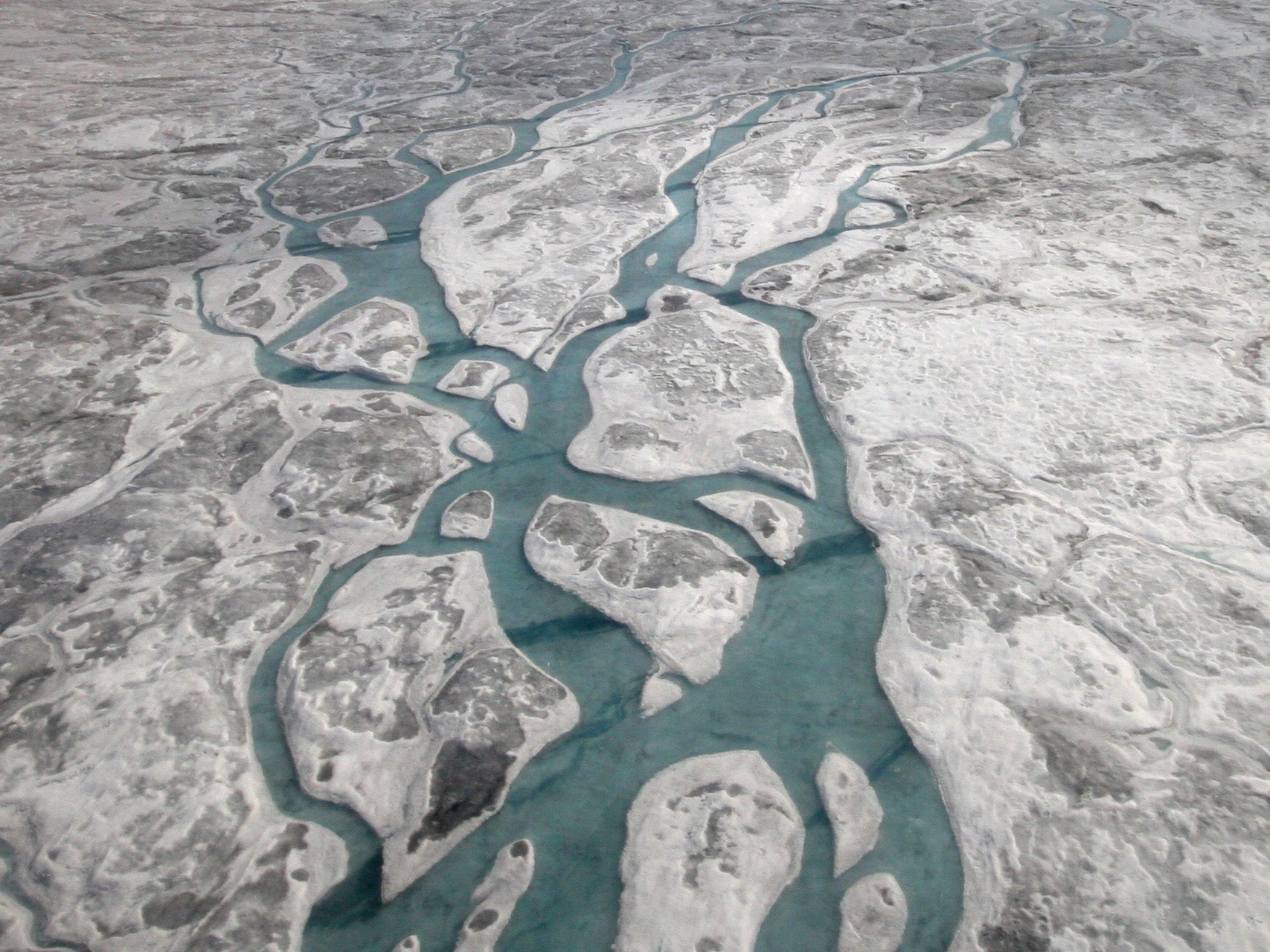Scientists discover 56 lakes beneath Greenland ice sheet which could be home to 'extreme life'
'These lakes could provide important targets for direct exploration,' expert says

Your support helps us to tell the story
From reproductive rights to climate change to Big Tech, The Independent is on the ground when the story is developing. Whether it's investigating the financials of Elon Musk's pro-Trump PAC or producing our latest documentary, 'The A Word', which shines a light on the American women fighting for reproductive rights, we know how important it is to parse out the facts from the messaging.
At such a critical moment in US history, we need reporters on the ground. Your donation allows us to keep sending journalists to speak to both sides of the story.
The Independent is trusted by Americans across the entire political spectrum. And unlike many other quality news outlets, we choose not to lock Americans out of our reporting and analysis with paywalls. We believe quality journalism should be available to everyone, paid for by those who can afford it.
Your support makes all the difference.More than 50 lakes have been discovered beneath the Greenland ice sheet, which scientists say could be home to examples of “extreme life”.
The 56 subglacial lakes range in length from 200 metres up to 5.9km, and bring the total known number of lakes under the ice sheet to 60.
Greenland covers an area roughly seven times the size of the UK, and its ice sheet – the melting of which plays an important role in climate change – is in places more than 3km thick.
The lakes form when meltwater generated from a number of sources, including the Earth's geothermal heat, becomes trapped due to variations in the ice’s thickness or in depressions.
They were discovered by scientists at the Universities of Lancaster, Sheffield and Stanford, who analysed more than 500,000km of airborne radio echo sounding data, which provided images of the ice sheet's bed.
Scientists said the lakes’ discovery would help them understand where meltwater occurs and how it drains, which influences how the ice sheet responds to rising global temperatures.
“Researchers have a good understanding of Antarctic subglacial lakes, which can fill and drain and cause overlying ice to flow quicker. However, until now little was known about subglacial lake distribution and behaviour beneath the Greenland ice sheet,” said lead author Jade Bowling of Lancaster University.
"This study has for the first time allowed us to start to build up a picture of where lakes form under the Greenland ice sheet. This is important for determining their influence on the wider subglacial hydrological system and ice-flow dynamics, and improving our understanding of the ice sheet's basal thermal state."
The majority of lakes were relatively stable, but risk filling up with more meltwater and draining into the sea as the climate warms.
Researchers observed seeing two lakes closer to the edge of the ice sheet draining and being refilled by meltwater.
Dr Stephen J Livingstone, senior lecturer in physical geography at the University of Sheffield, said: “The lakes we have identified tend to cluster in eastern Greenland where the bed is rough and can therefore readily trap and store meltwater and in northern Greenland, where we suggest the lakes indicate a patchwork of frozen and thawed bed conditions.
“These lakes could provide important targets for direct exploration to look for evidence of extreme life and to sample the sediments deposited in the lake that preserve a record of environmental change.”
The study, titled Distribution and dynamics of Greenland subglacial lakes, is published in Nature Communications this week.
Join our commenting forum
Join thought-provoking conversations, follow other Independent readers and see their replies
Comments